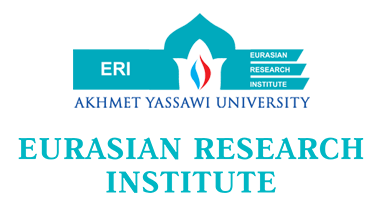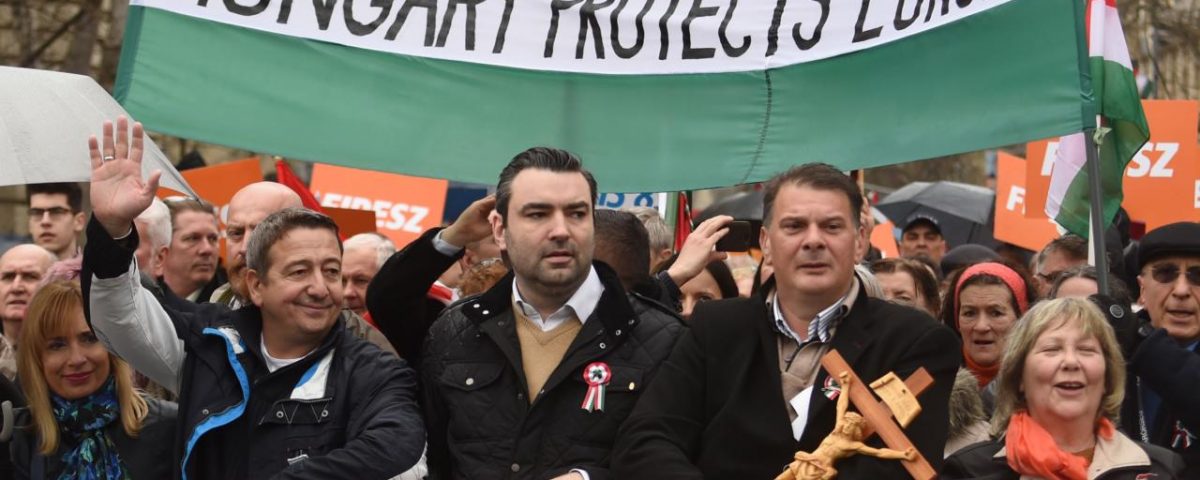Hungary under the leadership of Prime Minister Viktor Orban has developed increasingly positive relations with the Organization of Turkic States (OTS), a cooperative assembly of Turkic states. Orbán’s administration has pursued these relations as part of a broader strategy of Easter Opening to diversify Hungary’s international relationships beyond its traditional European focus. Within these interactions, there is often a reference to the deep Uralo-Altaic origins of Hungarians. In this article, we will analyze Hungary’s interest in enhancing cooperation with OTS and its connection to becoming a part of the Turkic World.
Before our analysis, we need first to define the mission and objectives of the OTS, in order to present potential reasons for Hungary to show an interest in strengthening its cooperation with OTS. The organization officially declares its objectives as furthering the deepening of comprehensive cooperation among Turkic-speaking states, while also making joint contributions to peace and stability both in the region and the world. The scope of cooperation offered by the OTS is extensive, encompassing issues such as developing common positions on foreign policy matters, combating international terrorism and extremism, enhancing social and cultural cooperation, and expanding interaction in the areas of science, technology, education, sports, and other related topics.
Established on 3 October 2009 as the Cooperation Council of Turkic Speaking States (commonly referred to as the Turkic Council), the organization was initially seen as a regional platform primarily focused on social and cultural cooperation. However, the subsequent evolution of the organization, notably Hungary’s attainment of observer status in November 2018 and its rebranding as the OTS in 2021, alongside the inclusion of the Turkish Republic of Northern Cyprus as an observer member in 2022, are considered successful developments regarding its expansion. In particular, Hungary’s accession, albeit in an observer capacity, has gently broadened the OTS focus from socio-cultural matters towards increased political cooperation.
Indeed, Hungary’s heightened cooperation with Turkic-speaking states was a part of an Eastern Opening policy initiated by Prime Minister Viktor Orban’s government, officially declared and actively pursued starting in 2010. The policy aimed to foster relations and enhance economic partnerships by strengthening ties with non-European countries. The main objective of this policy is to open a new frontier in Budapest’s foreign policy objectives and its cooperation frameworks beyond the European Union. The ruling party Fidesz – Hungarian Civic Alliance came to power in Hungary after winning the parliamentary elections held on April 11 and April 25, 2010. Following their victory, Viktor Orban became the Prime Minister of Hungary.
Fidesz is a right-wing with a distinct array of characteristics, ideologies, and values that it promotes. Therefore, it sometimes could be referred to as the far-right party also concerning their views regarding immigrants, advocacy for economic protectionism, and resistance to economic liberalization. Moreover, the defense of national sovereignty and identity, and the support of traditional values are some of the other areas in which they emphasize their stance. In coalition with the smaller Christian Democratic People’s Party (KDNP), which also aligns within the right political spectrum, Fidesz has held a supermajority in the Hungarian Parliament since coming to power in 2010 winning every election. In the most recent 2022 election, this coalition secured 117 out of 199 seats, receiving the majority of the votes (National Election Commission, 2023).
The concept of national identity frequently figures in the political agenda of the Hungarian right-wing, as it is common among many European rightist parties, particularly in Eastern Europe. Within the context of the European Union and its deepening integration, a fundamental tension emerges between the expansion of a common European identity and the preservation of distinct national identities. Those who feel their national identity is threatened by the intrusion of a broader European identity often become defensive of their national identity. This dynamic is evident to varying degrees across numerous European right-wing political forces (Xin, 2023). Unlike in other European nations, however, Hungarian right-wing parties have uniquely integrated the metanarrative of “Neo-Turanism” into their political discourse as a means of safeguarding national identity. This narrative reminds and emphasizes the deep Uralo-Altaic origins of Hungarians, transforming it into a political argument for strengthening cultural, political, and economic alliances with a broad array of Eastern nations, including Turkic-speaking countries, Slavic nations, and countries of the Far East (Akcali and Korkut, 2012). It is interesting that two seemingly opposing paradigms, the Christian bulwark and Turanism, not only coexist within the political sphere but also have been intertwined within the Hungarian mindset for centuries. These two geopolitical traditions have historically reinforced each other, primarily through cultural fusion. More recently, they have contributed to Hungary’s self-image as a bridgehead linking East and West. On the one hand, despite the prevailing narrative of a thousand-year-old Christian state, ancient Eastern traditions such as e.g. nomadism have persistently figured in Hungarian historical memory. On the other hand, the concept of Hungary as a Christian bulwark has been instrumental in reinforcing its European identity, providing a form of defense against perceived threats from the East or South (Balogh, 2022).
However, it is crucial to recognize that attempts to appeal to an alternative identity have limited practical utility when it comes to the political instrumentalization of these concepts. For example, the notion of Turanism, coupled with anti-Western and Eurosceptic rhetoric, was heavily utilized by another far-right conservative party, Jobbik. Despite this, Jobbik never succeeded in securing a majority of the votes and remained a relatively marginal party with a very limited voter base. These and other setbacks have made the party to soften its rhetoric and shift toward a more centrist and moderate position in recent years. Hence, despite its historical role in shaping Hungarian identity, we can assert that the Turanist identity metanarrative did not garner substantial support for other parties among voters except Fidesz.
On the other hand, the ruling Fidesz party has had more success in converting this metanarrative into a more moderate and practical form mainly expressed in conservatism, vigorous nationalism and considerable Euroscepticism. The Turanist identity metanarrative in this context serves to safeguard and distinguish Hungarian cultural identity from various forms of cultural liberalism and cosmopolitanism, which can be referred to as the “liberal interpretation of modernity (Blackburn, 2021)” strongly promoted by the European Union. At the same time, a nuanced appeal to the Turanist origins of Hungarians in modern political discourse has been successfully used to defend Hungary’s European cultural essence together with its affiliation with the community of Christian European nations. This political value system was communicated to the voters in more explicit and understandable ways e.g. emphasizing the protection of Hungarian traditions, culture, and language, the promotion of religious values, and opposition to liberal movements such as LGBTQ+ rights and gender liberalism. Thus, the Euroscepticism often attributed to Fidesz and other right-wing political forces in Hungary does not represent pure Euroscepticism. Instead, it reflects an effort to redefine their commitment to a more conservative set of European values, which resonates strongly within Hungarian society. An indicator of this can be the measure of Euroscepticism. For instance, the Eurobarometer survey of 2023, published annually by the European Commission, shows that 45% of Hungarians feel neutral about the European Union. However, the combined share of those who were very positive (4%) and fairly positive (33%) significantly outweighs those who were fairly negative (16%) and very negative (2%) (European Commission, 2023). The same report also indicates that 51% of Hungarians identify themselves as both “Hungarian and European”, a figure that is significantly higher than those who identify solely as “Hungarian” (European Commission, 2023). These figures are quite average compared to the rest of the EU member-states.
The Eastern Opening policy by Hungary and its attempts to create cooperation schemes with Turkic states is therefore not economically motivated but rather the preservation of their national identity and potential energy cooperation. For instance, all countries of the OTS account for less than 2% of Hungary’s trade, and Hungary is not a significant trade partner for these countries either (UN Comtrade, 2023). Economically, Hungary is well integrated into the EU, with approximately four-fifths of its foreign trade conducted with other EU member states. However, one of the most important aspects of closer cooperation with Eastern partners that Hungary’s current leadership may be considering is preferential access to energy resources. Currently, Hungary remains heavily dependent on imports of Russian oil, which makes more than one-third of its total imports of hydrocarbons. However, the future of this energy trade is increasingly uncertain. Tightening sanctions, rising discontent among European partners, and the frustration of Ukraine – a neighboring country – are prompting the Hungarian leadership to explore alternative strategies for ensuring the country’s energy security. In this light, it is highly probable that the Hungarian leadership might be planning to significantly expand its energy cooperation and trade with its Eastern partners. Specifically, Hungary might be interested in increasing its engagement with Azerbaijan, Kazakhstan, and Turkmenistan, countries known for their hydrocarbon exports. Hungary might also be aiming to enhance its connections with Türkiye, which is known for its role as a major energy hub in the region.
In this context, it should be mentioned that the energy sector is one of the most sensitive issues for Budapest. Firstly, being a landlocked country limits Hungary’s ability to easily switch from one energy supplier to another, which is one of the reasons Hungary finds it challenging to significantly reduce its reliance on Russian oil imports. Secondly, the success of the manufacturing sector, which is the backbone of the Hungarian economy, is highly sensitive to energy costs. Consequently, access to affordable energy is crucial for the growth of the Hungarian economy. Thirdly, one of the key factors contributing to public support for the ruling Fidesz party has been its ability to provide cheap energy to the population, a success largely due to diversified energy sources and preferential energy import deals. For example, in 2023, the average electricity prices for household consumers in Hungary were only 40% of the EU average and the second cheapest among EU countries. Therefore, energy cooperation remains one of the most critical areas that Hungary will consistently prioritize in its dealings with Eastern partners.
In conclusion, it can be said that Hungary’s Eastern Opening policy resulted from a complex combination of factors, including the acknowledgment of a deeply rooted historical identity and the interplay of various current internal and regional political factors. To a large extent, the policy emerged from the political success of the ruling party, Fidesz, and other right-wing political forces. We can also clearly see that the scope of Hungary’s cooperation with Turkic states and other Eastern partners substantially exceeds the frameworks of the OTS and other existing cooperation schemes. This expansion provides reason to expect further developments in extending ties of international cooperation.
References
Balogh, Peter (2022). Clashing geopolitical self-images? The strange co-existence of Christian bulwark and Eurasianism (Turanism) in Hungary. Eurasian Geography and Economics, 63: 726-752.
Baranyi, Tamás, Péter (2022). Hungary’s role in the Organization of Turkic States as an observer state: Limitations and opportunities. Perceptions, 27 (1): 121-136.
Blackburn, Matthew (2021). Mainstream Russian nationalism and the state-civilization identity: perspectives from below. Nationalities Papers 49 (1): 89–107.
Akcali, Emel and Umut Korkut (2012). Geographical metanarratives in East-Central Europe: Neo-Turanism in Hungary”. Eurasian Geography and Economics, 53 (5): 596-614.
European Commission (2023). Standard Eurobarometer 2023. Retrieved from https://www.statista.com/statistics/1359668/euroscepticism-public-opinion-eu-image/. Accessed on 18.04.2024.
European Commission (2023). Eurobarometer shows the percentage of Europeans who identify as being European. Retrieved from https://www.eupedia.com/forum/threads/eurobarometer-shows-percentage-of-europeans-who-identify-with-being-european.44282/. Accessed on 18.04.2024.
National Election Commission (2023). Elections and referendums. Retrieved from https://www.valasztas.hu/web/national-election-office/national-election-commission. Accessed on 18.04.2024.
UN Comtrade (2023). Trade data. Retrieved from https://comtradeplus.un.org/TradeFlow. Accessed on 15.04.2024.
Xin, Xiong (2023). “The Rise of Far-right Politics in Europe: Examples from Italy, Hungary and France”. Retrieved from https://www.researchgate.net/publication/369868860_The_Rise_of_Far-right_Politics_in_Europe_Examples_from_Italy_Hungary_and_France. Accessed on 15.04.2024.
Note: The views expressed in this blog are the author’s own and do not necessarily reflect the Institute’s editorial policy.

